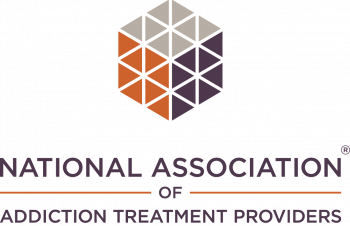Signs that someone is abusing morphine will be relatively similar to signs that they are using similar drugs like heroin, fentanyl, or prescription opiate painkillers. Opioids are either codeine-based or morphine-based. Morphine is an analgesic that has long been prescribed for pain management. In recent times, the opioid epidemic has shined a light on the dangers of these types of medications when they are prescribed outside of a medical setting, such as a hospital. If you or someone you care about is abusing opiates or struggling with opiate addiction, reach out to our experts at TruHealing Gaithersburg.
At TruHealing Gaithersburg, we take pride in providing care that treats the whole person. This means our doctors and mental health practitioners practice integrated wellness medicine to ensure that we are dealing with the core issues that lead to addiction to promote recovery as well as healthy and positive life choices. Reach out to us today online or call (833) 625-0398 to speak with a trained representative who can provide more information about opioid addiction treatment.
Common Signs of Morphine Abuse
Morphine, like other opioids, is risky in part because people who use and abuse the substance develop tolerance quickly.
Those who are most at risk of developing problems with substance abuse include:
- Individuals with a history of mental health issues
- Family history of drug abuse and addiction
- Personal history of experimenting with drugs or alcohol abuse
Signs that a person may have developed a problem with morphine abuse may include:
- Taking more of the medication than prescribed
- Using morphine with other non-prescribed medications
- Excessive drowsiness
- Pinpoint pupils
- Poor coordination
- Slurred speech
- Confusion
Know the Signs of an Opiate Overdose
If someone you care about is struggling with opiate addiction or painkiller abuse, it’s important to be aware of the signs of overdose. This is especially true with opiates because naloxone, also known as Narcan, can be used as a lifesaving measure in an overdose situation.
Signs a person is overdosing on opiates can include:
- Difficulty breathing
- Slow, shallow, or irregular breathing
- Slow heartbeat
- Inability to stay awake or conscious
- Cold, clammy skin
- Difficulty communicating
In an overdose emergency, it’s essential to have a prepared protocol. If you believe someone has overdosed, the first step is to call 911 and ask an emergency responder to bring additional doses of naloxone.
Try to engage the person who appears to have overdosed. If they remain conscious, try to keep them awake and communicating.
If available, attempt to use Narcan to revive the overdosed person. When administering the spray form of naloxone, spray once in each nostril of the person. Rub the person’s chest to promote breathing and blood flow throughout their body. Once emergency services arrive, allow them to take over the situation.
TruHealing Gaithersburg’s Programs and Therapy Options
If you or your loved one is struggling with morphine addiction, opiate addiction, or polysubstance abuse and addiction, we encourage you to reach out to the professionals at TruHealing Gaithersburg for help today. Our expert medical doctors and mental health counselors are available to help you get your life back on track.
Our TruHealing Gaithersburg team provides a wide range of programs and mental health services for those ready to begin a new chapter in their lives.
Our programs include:
- Gender-specific rehab
- Partial hospitalization program (PHP)
- Intensive outpatient program (IOP)
- Outpatient treatment program (OP)
- Aftercare program
- Relapse prevention program
Our mental health therapies include:
- Cognitive-behavioral therapy (CBT)
- Dialectical behavior therapy (CBT)
- Trauma therapy
- Family therapy
- Group therapy
Overcome Morphine Abuse at TruHealing Gaithersburg
Morphine abuse changes almost every aspect of a person’s life. For more information about how opioid addiction treatment at TruHealing Gaithersburg helps people face their morphine abuse, contact our team at (833) 625-0398 or fill out our online contact form.









